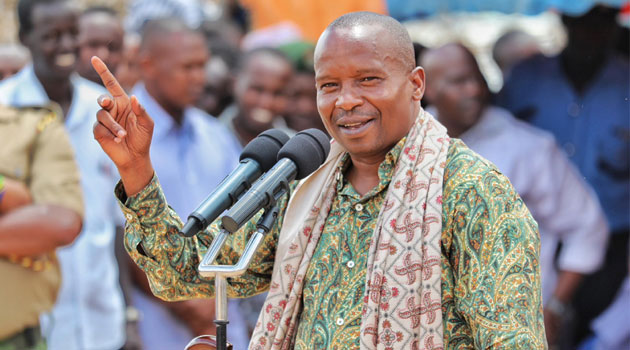Kindiki has mandated National Government Administration Officers (NGAO), supervised by respective County Security Committees(CSC), to establish more temporary shelter points to accommodate the rising number of affected persons.
The government has established 138 temporary shelters across eighteen counties to cater for displaced persons amid flood-related emergencies.
Interior Cabinet Secretary Kithure Kindiki made the announcement on Saturday in an update on ongoing heavy rains that have caused floods and landslides in parts of the country.
“The camps are hosting 62,061 persons from 14,771 households who are being supported with food and non-food essentials until the floods subside,” he stated.
He highlighted that the camps’ locations had been publicly displayed in government offices including those of; Assistant Chiefs, Chiefs, Assistant County Commissioners, Deputy County Commissioners and County Commissioners.
Kindiki also mandated National Government Administration Officers (NGAO), supervised by respective County Security Committees(CSC), to establish more temporary shelter points to accommodate the rising number of affected persons.
Additionally, he directed security committees across the country to ensure the maintenance of public safety to avoid more casualties.
“CSCs are directed to continuously monitor other dams or water reservoirs within their respective jurisdictions which may not be presenting public safety issues but could do so in the event of rains,” he stated
The committees are required to conduct outreach programs to sensitize the public on disaster preparedness, publicize temporary shelter camps and collaborate with the counties for a coordinated response to emergencies.
The government has directed security agencies to ensure relocation and evacuation of affected persons is done in good time and with respect to the dignity of the affected persons.
Kenya had as of Friday reported 210 deaths as a result of floods and landslides. By Minah Mahero. Capital News






